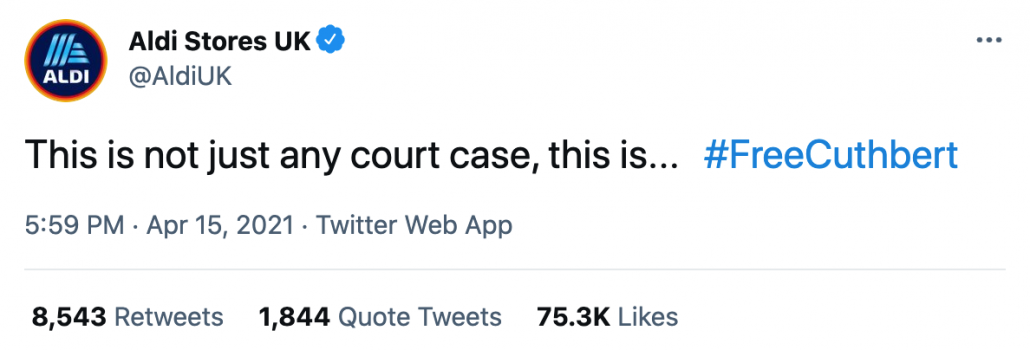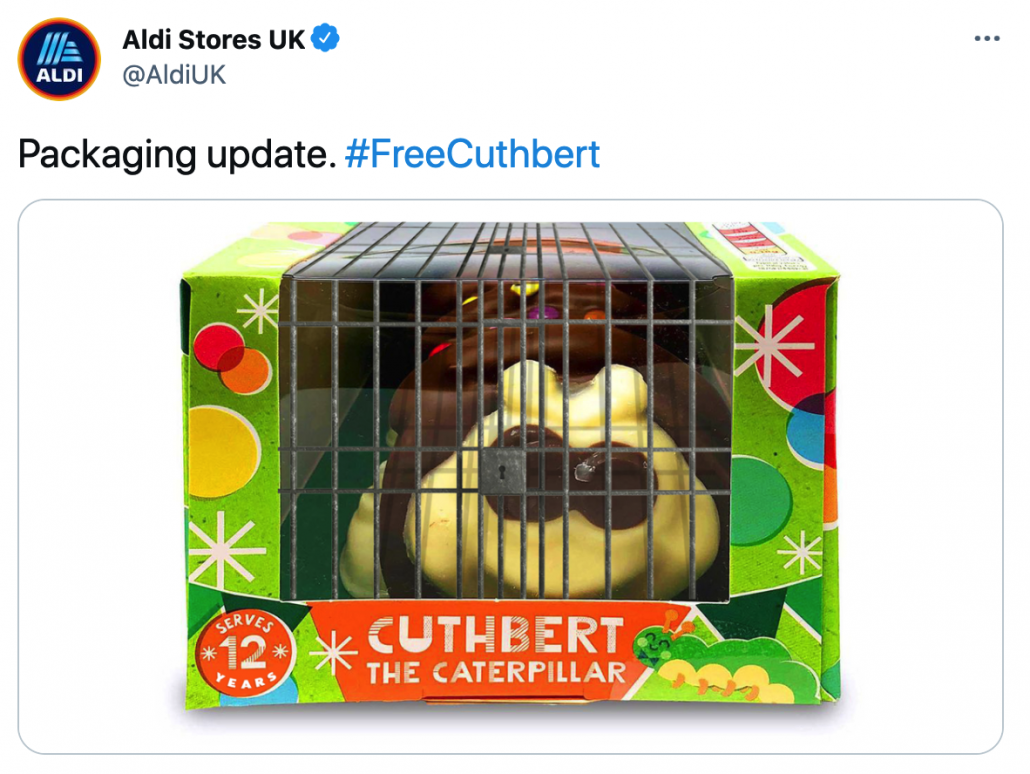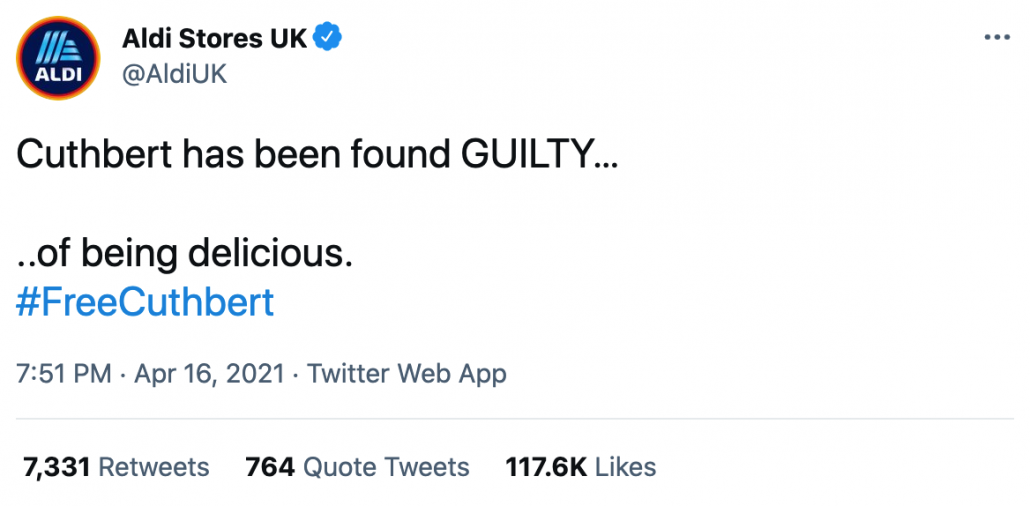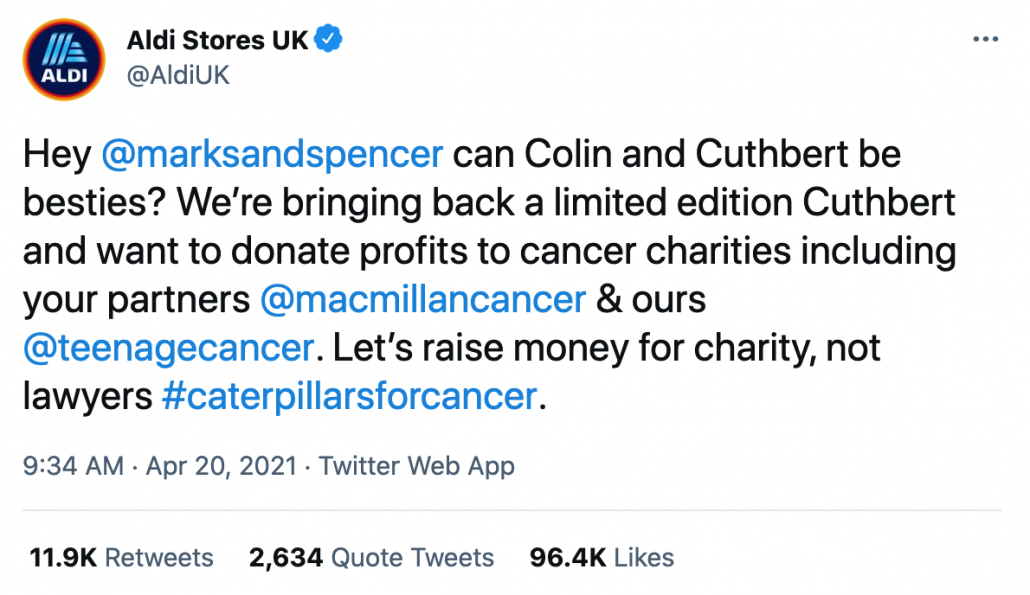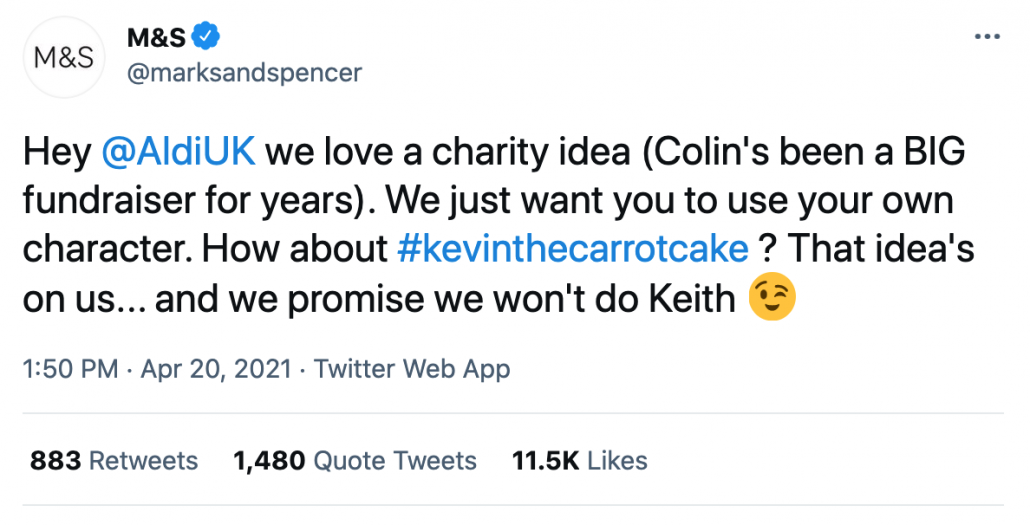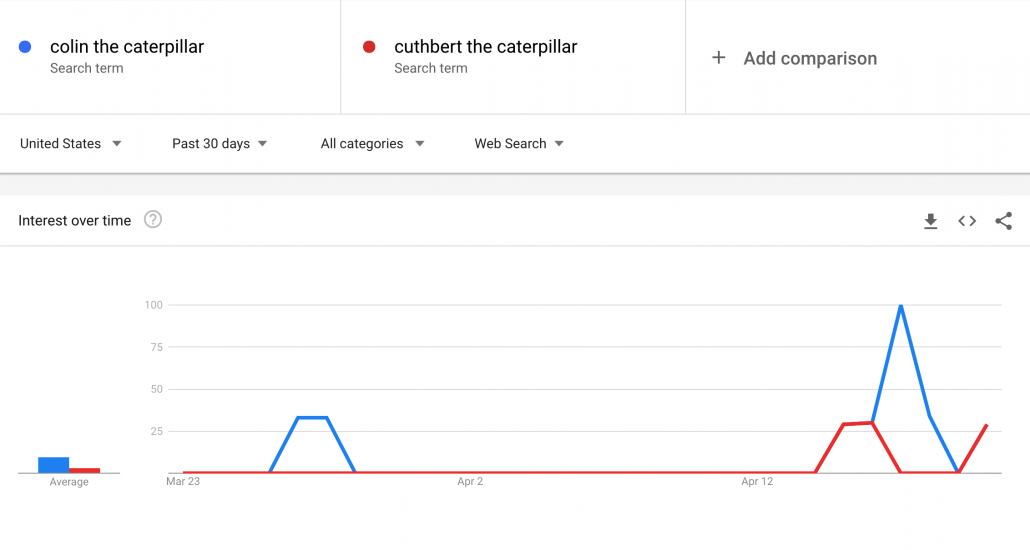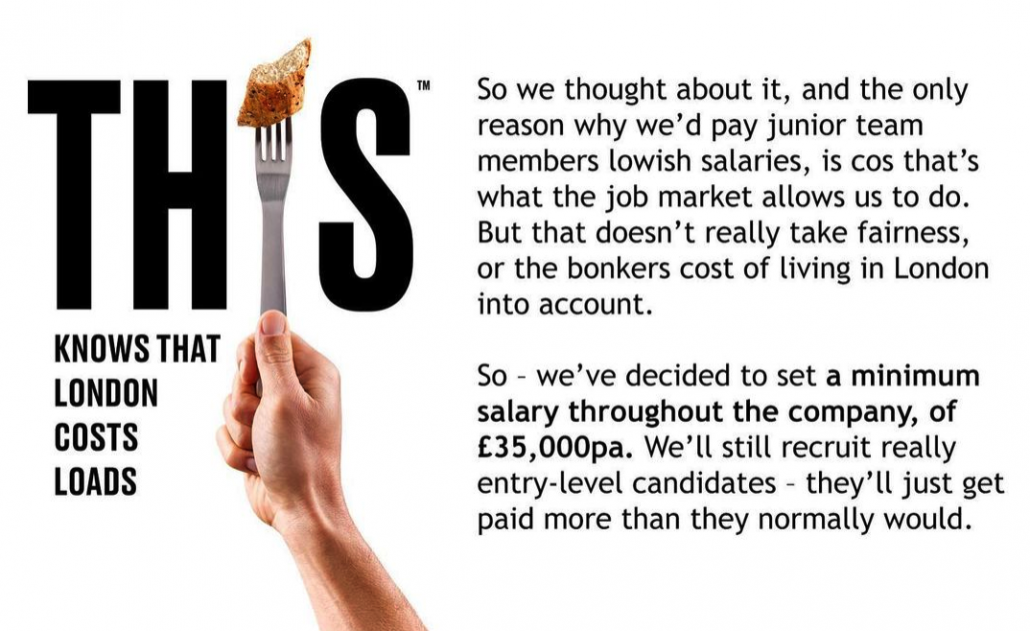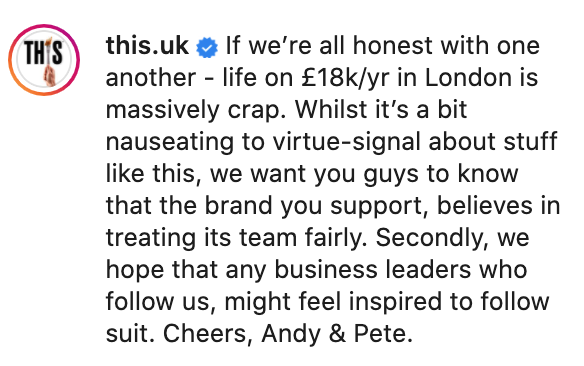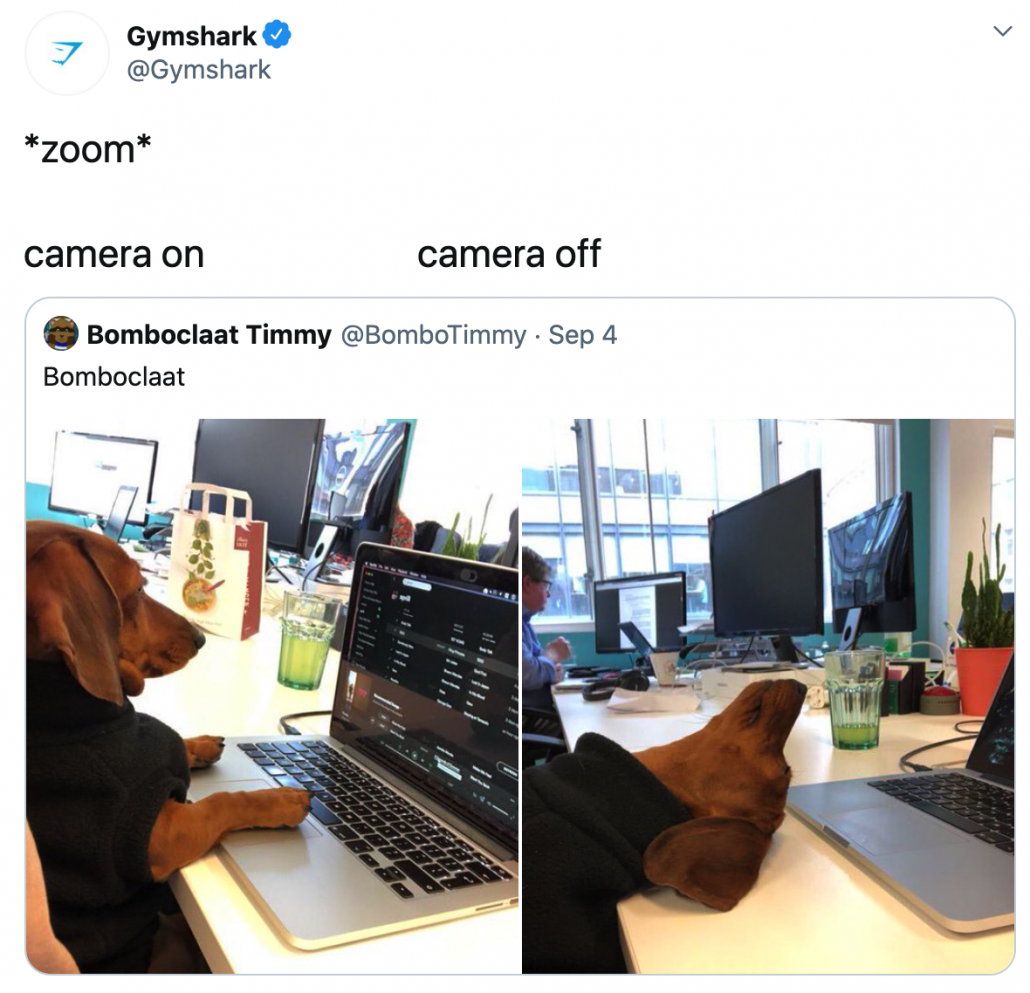Colin Vs Cuthbert, Covert Collaboration Or Legitimate Lawsuit?
If you’ve been anywhere near social media within the last week or so, you’ll have noticed that there’s something of an unexpected war going on between two beloved supermarket brands at the moment: M&S, the British retailer, has launched a court case against German supermarket Aldi for allegedly imitating its birthday cake, Colin the caterpillar, with its own version, Cuthbert.
A sour taste
It’s an unusual case for many reasons, with the first being that Aldi is known for copying other, ‘official’ brands, and replacing them with a similarly-designed, cheaper alternative. The retailer has thus far evaded a case like this, which begs the question: why this product in particular?
Another question remains: why target Aldi for a lawsuit when there are many other retailers, including ASDA, Tesco, Sainsbury’s and Waitrose, that all have caterpillar cakes too?
Some people have theorised that the ‘lawsuit’ is actually a collaboration between the two supermarkets to generate publicity for their respective brands. Though a court case is an unconventional way to generate PR, there are instances in which the attention brought by the companies involved has ensured the brand name has been given an amount of exposure that would rival a typical PR campaign. McVitie’s court case regarding the categorisation of a Jaffa Cake as a ‘cake’, which was initially a ‘biscuit’, started the now well-known debate of which category the confection lies in.
Similarly, a 12-year-long case also involved M&S regarding whether or not a ‘teacake’ was classed as a cake or a biscuit (the retailer ultimately winning their case).
Eagle-eyed M&S shoppers have also pointed out the new abundance of Colin products, such as mini cakes, sour sweets and gift bags, as well as children’s clothing and a Connie Caterpillar cake, supporting the fact that the company is definitely going big on all things caterpillar right now. Though a court case sounds like a stretch in terms of marketing tactics, stranger things have happened in the world of PR.
Copycat-erpillar
However, in the opinion of Rebecca Jane writing in the Burnley Express, the case is a legitimate one due to the extent of the similarities between Colin and Cuthbert, compared to the cakes made by the other supermarkets. ‘If you compare them all, they have fundamental differences – except for Aldi’s. The Aldi cake is almost identical to Marks and Spencer, and that’s where Aldi’s defence will fall down. In law land, in my belief, it is called ‘passing off’. Therefore, M&S will win.’
So it seems M&S are indeed willing to go to bat over these similarities: but is the lawsuit worth the poor PR generated?
Battle of the brands
The case has provoked Aldi’s social media team to take things by the reigns, providing an endless stream of jokes and memes regarding the sticky situation…
Aldi has been known to poke fun at other brands on Twitter, such as the IPA company Brewdog and, more recently, Dulux paint, due to its own hiccup involving its new sponsorship of Tottenham Hotspur. Its approach to social media, with tongue-in-cheek jokes and references to other brands, far surpasses that of M&S, who has so far stuck to its guns and have kept pretty quiet on Twitter regarding the case.
It all came to a head on Twitter on Tuesday, when Aldi took M&S to task in its most tactical move yet:
M&S’s response clearly tried to invoke the teasing approach Aldi has so far perfected, but turning down an offer of a collaboration for charity was never going to look good. Aldi has boxed them in a corner here: if M&S do indeed win the case, as predicted by Rebecca Jane, it would be a poor move for its image to keep the money it wins as opposed to donating it to Macmillan.
However, in the other corner, some believe that ‘playing the charity card’ was in bad taste by Aldi and over-stepped the line.
At the end of the day, was it even worth challenging the supermarket in court over such a petty difference? The fallout might just mean shoppers choose the cheaper, similar alternative, as the case seems to have done little but draw attention to the fact that shoppers can get an identical version of the cake for less!
A final note: these are the Google search trends for the respective products over the last 30 days. Only the sales of the products will determine the true effects of the trial, however, it looks like, for now, Colin is still very much the king of the cakes…
Time will tell how the case plays out: who knew children’s birthday cake could be so complicated?!
At Source, we know how best to put your brand’s name out there without any hassle. We have over ten years’ experience in PR, digital marketing and communications, including crisis comms: why not give us a call on 01829 72078, or get in touch with us via our Twitter, Facebook, Instagram or LinkedIn?

